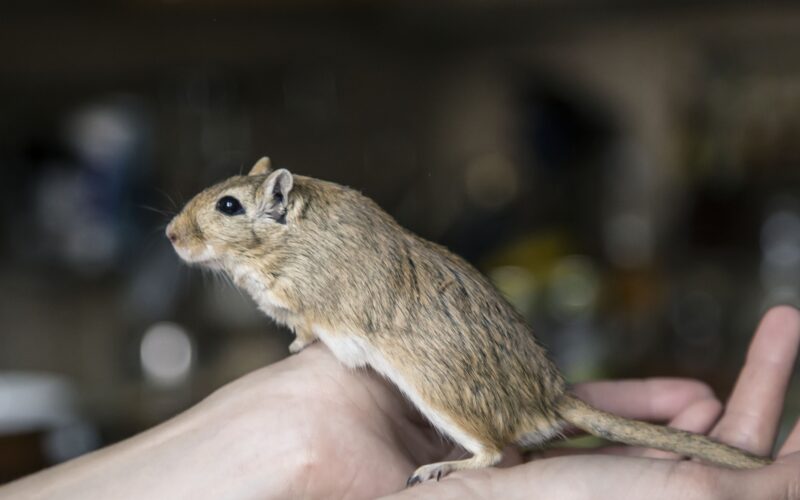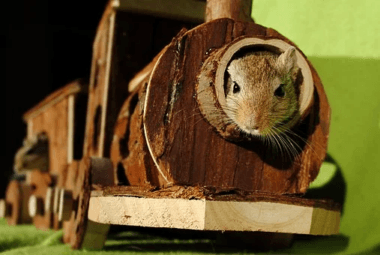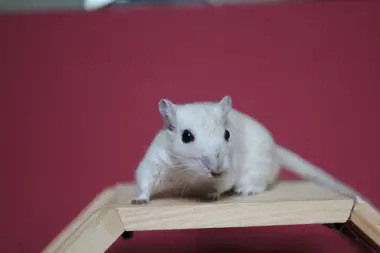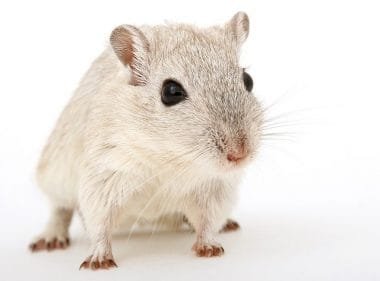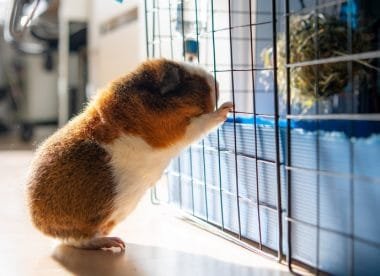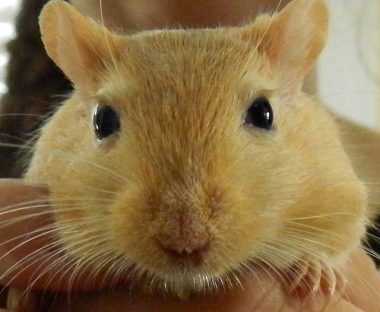Gerbils are known to be social creatures, which means that they love playing and interacting with each other. Because of this, they also have developed different means of communicating with each other. These means include different types of sounds and vocalizations. Your gerbils develop a close bond with you. It is also quite possible that your pet gerbils may use these vocalizations and sounds to communicate with you. The sounds used by the gerbils are indicative of their feelings.
Gerbil sound communicates to you how they are feeling at that moment. But in order to understand what they are trying to communicate to you, you need to comprehend the context in which they are making these sounds. This involves understanding their body posture, movements, and gestures. These will help you decipher what your gerbils are trying to tell you. The type of sounds made by the gerbil also changes based on their age and sex. It is important for you to understand what different gerbil sound may mean in order to harness a loving bond with your tiny munchkins.
Here are some sounds made by gerbils that you need to take special note of:
#1– Chirping
Chirping is a sound that is most commonly annotated to birds. However, gerbils chirp too. In fact, chirping is one of the most common sounds made by them. Gerbils usually chirp when they are in need of some attention. This sound-making starts at a young age when they are trying to grasp their mother’s attention. Chirping is normally high-pitched but the volume can vary. It may be too loud or so quiet, you may have a hard time hearing it. While young gerbils are said to chirp a lot, this behavior can be seen amongst older gerbils too. It is, however, not very frequent. Chirping amongst older gerbils may also vary as per the context. For instance, the chirping noise you hear when gerbils are playing differ from the one when they are fighting.
As mentioned already, gerbils make chirping sounds when they need attention. If they are making this sound around you, it means that they trust you and are very fond of you. When they make these chirping noises, it may mean several things. They may want to play with you, be petted by you, share things they found, or they could simply be reminding you that they are hungry. Nonetheless, remember that if your gerbils are chirping around you, it is quite positive in nature.
#2– Purring
Cats are known to purr when they are happy, content, and relaxed. It is the same case with gerbils too. If they are making the purring sound around you, know they are happy and in a good mood. Gerbils give out a low rumble when they purr. The sound of this may be so low that you may not even be able to hear it. To notice the purr, you may want to look at their jaw area because that is where they make the sound from. Unlike cats, gerbils make the purring sound by tapping and grinding their teeth. This may also look like teeth chattering to some. You will also notice that gerbils vibrate when purring – this happens because of their teeth tapping together.
The next time you are holding your gerbil and they start purring, know they are really happy and content with you. In such cases, shower them with affection. This also means that your gerbil shares a good bond with you.
#3– Clicking
Clicking is a common gerbil sound that is made by them when they are unwell. The sound point towards a respiratory infection, and is made due to the breathing action performed by the gerbil. When you hear your gerbil making the clicking sounds, look out for other symptoms as well. These could be coughing and sneezing along with gasps and the common cold. You may also notice that your gerbil is not eating as much as before. In such cases, you must take your gerbil to the vet.
#4– Thumping
Gerbils do not only communicate by making noises from their mouth – they also use their feet to communicate. To do this, they resort to what is known as thumping. Although gerbils are tiny in size, the thumping noise they make is very loud. They produce this sound by pounding their hind feet against the floor. It is also true that gerbils imitate the thumping noises that they hear. So, if one of your gerbils starts thumping, others in his or her company will follow suit. Also, if there is a thumping sound coming from somewhere in the house, all gerbils will start thumping. There are various reasons for the gerbils to start thumping.
One reason a larger gerbil may start thumping may be to dominate smaller gerbils. They may want to show their power and dominance. The sound is loud enough to scare a smaller gerbil.
Thumping is also a significant sound made by gerbils when they are interested in mating. Thumping by a male gerbil all around the enclosure is a part of a mating ritual.

Yet another reason gerbils may start thumping is when they feel threatened or are stressed about something. Thumping is the most aggressive sound that gerbils can make, so they use this as their defense mechanism.
#5– Squeaking
Gerbils squeak for different reasons, and not all of them have a positive connotation. There are three major things you need to note when you hear a squeaking sound – the volume, urgency, and whether only one gerbil is squeaking or more. These are extremely important to decipher why the gerbils may be squeaking. Here are some scenarios that can lead to this gerbil sound:
Fighting
As you already know, gerbils need to be kept in pairs. If you have two males together, it is quite apparent that they will fight sooner or later. This fight happens due to the hierarchical nature of gerbils. There needs to be one leader amongst them, and males will fight with each other to become that leader. You need to look out for signs. It is possible that the males are boxing and wrestling playfully, but if there is biting involved, it means that they are fighting. You can also hear high-pitched squeaks when they are fighting.
Pain
If a gerbil makes a high squeaking sound, it may also mean that they are hurt. If you hold your gerbil and they make the sharp squeaking sound, it may mean that you are holding it too tightly. But if you think that your grip is not too tight, it may mean that he or she is ill or injured. Squeaking, thus, is a matter of urgency because this sound comes out only in extreme conditions.
Interaction between Gerbils
Humans love talking to each other and so do gerbils. They interact with each other a lot, and many a time, squeaking is a form of communication for them. There are several cases where gerbils use this sound to exchange words amongst each other. This could be when they are enjoying their food or when parent gerbils are talking to their little ones. This form of communication is extremely vital for the gerbils, especially in the wild, as it helps them keep a track of each other.
Excitement
Gerbils also use squeaking sounds when they are excited, both positively and negatively. For instance, if your pet gerbils are seeing you after a few hours, they showcase their joy and excitement on seeing you by letting out squeaks. They may also start jumping and reaching out to you. This gerbil sound is a beautiful experience that you get to enjoy with your pet gerbils. However, it is not always a case of happiness. Loud and urgent squeaks may mean that something is wrong. For instance, they may be scared in the presence of a stranger in the room. In such cases, you need to take matters more seriously.
#6– Yipping
Yipping is a sound made by gerbils when they are extremely excited. Since gerbils are social animals, they love communicating all such feelings. Along with the tipping sounds, you may also notice that your gerbil is racing around, hopping on its back feet, and trying to get out of its cage. All of these signs show that your gerbil is very happy and excited.
Understanding Gerbil Sounds
Gerbil sounds take different meanings as per different circumstances, as has already been outlined above. So, it is important for you to understand different behavior patterns in order to discern the meaning of different gerbil sounds. This will help you act out for the best interest of your little pets. You need to look out for the body actions that go with the type of noises they are making. Some of the most common behaviors displayed by gerbils include belly rubbing, nose rubbing, winking, and chewing. Look out for these signs in order to understand your gerbil better.
Final thoughts
As a pet parent, it is crucial that you learn the various ways in which your gerbils are trying to communicate with you. Knowing their different sounds, noises, and vocalizations can help you understand what they are feeling and what they want. This will help you become the most lovable and understanding pet parent to your tiny fur babies. These were some of the most common noises produced by gerbils. However, always take note of the context when you hear these sounds to find out the best possible meaning behind them.
